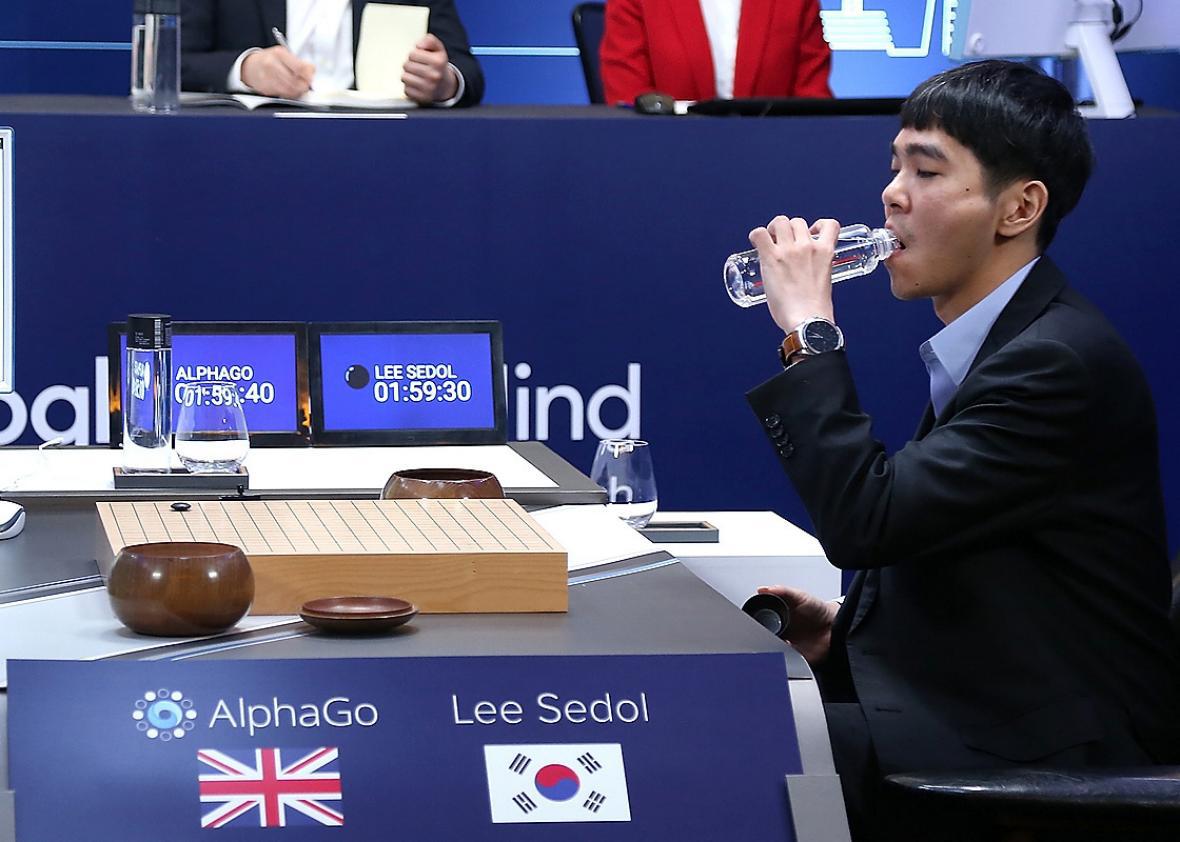Google’s AlphaGo computer program won the third straight game against a top player of the Chinese board game Go. The victory marks “a major step forward for artificial intelligence” that “experts had thought was still years away,” notes the Los Angeles Times. AlphaGo will still play the two remaining matches against 18-time world champion Lee Sedol, but “the results are in and history has been made.”
“I’ve never played a game where I felt this amount of pressure, and I wasn’t able to overcome this pressure,” Lee said at a press conference after the game.
Why is this victory such a big deal? Wired explains:
Over the last twenty-five years, machines have beaten the top humans at checkers and chess and Othello and Scrabble and Jeopardy!. But this is the first time an artificially intelligent system has topped one of the very best at Go, which is exponentially more complex than chess and requires an added level of intuition—at least among humans. This makes the win a major milestone for AI—a moment whose meaning extends well beyond a single game. Considering that many of the machine learning technologies at the heart of AlphaGo are already running services inside some of the world’s largest Internet companies, the victory shows how quickly AI will progress in the years to come.
The third victory made it clear that AlphaGo was the superior player. “It was seen to capably navigate tricky situations known as ko that didn’t come up in the prior two matches, which had prompted speculation that it could be a potential tripping point for the program,” reports the Verge.
Some top Go players said that AlphaGo made unorthodox moves that seemed questionable at first but then proved to make sense. There are many implications to this series of victories that show how computers can train themselves to play a very complex game.
“At the end of the day, winning a game of Go isn’t much different than safely driving a car across the country,” one expert tells the Los Angeles Times. “There are limitless possibilities of actions to take along the way, and a clearly defined failure state.”
